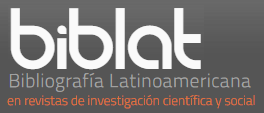Self-care of patients with Diabetes Mellitus type 2
DOI:
https://doi.org/10.5433/1679-0367.2019v40n1p75Keywords:
Self-care, Diabetes Mellitus type 2, KnowledgeAbstract
Objective: To classify the self-care of patients with Type 2 Diabetes Mellitus treated at an outpatient clinic in Aracaju / SE.Method: Cross - sectional and descriptive study with quantitative approach. A self-care assessment instrument was applied to patients with Type 2 Diabetes Mellitus (INAAP-DM2), which includes six domains, which evaluate several aspects of the disease and its self-care, with a general score by domain, with the following classifications: Totally Compensatory (score 1 or 2) - patient is unable to engage in therapeutic self-care actions; Partially Compensatory (score 3) - patient is able to learn, but needs the professional and / or family to perform the actions of self-care and Support-Education (score 4 or 5) - patient is able to learn and self- therapeutic. Student's t-test was applied to compare the means of samples independent of sociodemographic variables, with a significance level of 5%. Results: Of the 73 interviewees, 5 (6.8%) were classified as fully compensatory, 66 (90.4%) as partially compensatory, and 2 (2.8%) as support-education. There was no significant statistical difference in the correlation of the sociodemographic parameters analyzed.
Conclusion: The results reinforce the need for improvement in health education actions by health professionals, in addition to improving the understanding of the feelings and behaviors of the diabetic person, in order to promote the acceptance of their chronic health condition and, consequently, the adoption of healthy habits.
Downloads
References
Whiting DR, Guariguata L, Weil C, Shaw J. Diabetes Atlas. IDF Diabetes Atlas: Global estimates of the prevalence of diabetes for 2011 and 2030. Diabetes Research and Clinical Practice. 2011 Dec; 94(3): 311-21.
International Diabetes Federation. IDF The IDF Diabetes Atlas. 7 ed. [Internet] 2015. [acesso em 21 set 8] Disponível em: http://www.idf.org/diabetesatlas/
Brasil. Ministério da Saúde. Secretaria de Vigilância em Saúde. Vigitel Brasil 2014: vigilância de fatores de risco e proteção para doenças crônicas por inquérito telefônico. Brasília: Ministério da Saúde, 2015.
American Association of Diabetes Educators (AADE). Guidelines for the Practice of Diabetes Self-Management Education and Training. Chicago: 2011.
Roxas RC, Nicodemus Jr N. Adherence to self-care behavior in patients diagnosed with type 2 diabetes mellitus in the outpatient department of the philippine general hospital. JAFES. 2013;28(2): 134-42.
Ministério da Saúde (BR). Secretaria de Atenção à Saúde. Departamento de Atenção Básica. Diretrizes para o cuidado das pessoas com doenças crônicas nas redes de atenção à saúde e nas linhas de cuidado prioritárias. Brasília: Ministério da Saúde, 2013.
Oliveira, JEP, Vencio, S, organizadores. Diretrizes da Sociedade Brasileira de Diabetes (2015-2016). São Paulo: A.C. Farmacêutica, 2016.
Stacciarini TSG, Haas VJ, Pace AE. Fatores associados à auto-aplicação da insulina nos usuários com diabetes mellitus acompanhados pela Estratégia Saúde da Família. Cad. Saúde Pública. 2008 Jun; 24(6): 1314-22.
Ortiz LGC, Cabriales ECG, González, JGG, Meza MVG. Condutas de autocuidado e indicadores de saúde em adultos com diabetes tipo 2. Rev. Latino-Am. Enf. 2010 jul/ago; 18(4): 1-7.
Curcio R, Lima MHM, Alexandre NMC. Instrumentos relacionados ao diabetes mellitus adaptados e validados para a cultura brasileira. Rev. Eletr. Enf. 2011 abr/jun; 13(2): 331-7.
Mendonça SCB, Zanetti ML, Sawada NO, Barreto IDCB, Andrade JS, Otero LM. Construção de um instrumento de avaliação do autocuidado dos pacientes com diabetes mellitus tipo 2. Rev Latino-Am. Enfermagem. 2017; 25e2890.
Iser BPM, Malta DC, Bernal RTI, Szwarcwald CL, Duncan BB, Schmidt MI. Factors associated with self-reported diabetes according to the 2013 National Health Survey. Rev Saude Publica. 2017 jun 1; 51(suppl 1):12s. doi: 10.1590/S1518-8787.2017051000011.
Botton A, Cúnico SD, Strey MN. Diferenças de gênero no acesso aos serviços de saúde. Problematizações necessárias. Mudanças - Psicologia da Saúde. 2017 jan/jun; 25(1): 67-72.
Collins GS, Mallett S, Omar O, Yu LM. Developing risk prediction models for type 2 diabetes: a systematic review of methodology and reporting. BMC Med. 2011 Sep 8; 9(103): 1-14. doi: 10.1186/1741-7015-9-103.
Torres HC, Pace AE, Stradioto MA. Análise sociodemográfica e clínica de indivíduos com diabetes tipo 2 e sua relação com o autocuidado. Cogitare Enferm. 2010 jan/mar; 15(1): 48-54.
Baquedano IR, dos Santos MA, Teixeira CR, Martins TA, Zanetti ML. [Factors related to self-care in diabetes mellitus patients attended at emergency service in Mexico]. Rev Esc Enferm USP. 2010 dec; 44(4): 1017-23. Portuguese. PubMed PMID: 21337785.
Rodrigues FFL, Santos MA, Teixeira, CRS, Gonela JT, Zanetti, ML. Relação entre conhecimento, atitude, escolaridade e tempo de doença em indivíduos com diabetes mellitus. Acta Paul. Enferm. 2012; 25(2): 284-90.
Cardoso MI, Moraes MAM, Pereira JG. Práticas de autocuidado desenvolvidas por diabéticos tipo 2 em uma unidade de saúde da família. Rev. Eletr. Gestão & Saúde. 2011; 2(1): 277-90.
Péres DS, Santos MA, Zanetti, ML, Ferronato, AA. Dificuldades dos pacientes diabéticos para o controle da doença: Sentimentos e Comportamentos. Rev Lat Am Enferm. 2007; 15(6): 1105-12.
Xavier ATF, Bittar DB, Ataíde MBC. Crenças no autocuidado em diabetes - implicações para a prática. Texto Contexto Enferm. 2009 Jan/mar;18(1):124-30.
Goddard M, Smith P. Equity of access to health care services: theory and evidence from the UK. Soc Sci Med. 2001 Nov; 53(9): 1149-62. Review. PubMed PMID: 11556606.
Assis MM, de Jesus WL. [Access to health services: approaches, concepts, policies and analysis model]. Cien Saude Colet. 2012 Nov; 17(11): 2865-75. Portuguese. PubMed PMID: 23175292.
Severo SB, Seminotti N. Integralidade e transdisciplinaridade em equipes multiprofissionais na saúde coletiva. Cien Saude Colet. 2010; 15(1): 1685-98.
Fertonani HP, Pires DE, Biff D, Scherer MD. The health care model: concepts and challenges for primary health care in Brazil. Cien Saude Colet. 2015 Jun; 20(6): 1869-78. doi: 10.1590/1413-81232015206.13272014.
Silva PA, Silva GML, Rodrigues JD, Moura PV, Caminha IO, Ferreira DKS. Atuação em equipes multiprofissionais de saúde: uma revisão sistemática. ConScientia e Saúde. 2013; 12(1): 153-60.
Francioni FF, Silva DGV. O processo de viver saudável de pessoas com diabetes mellitus através de um grupo de convivência. Texto Contexto Enferm. 2007 jan/mar; 16(1): 105-11.
Gil GP, Haddad MCL, Guariente MHDM. Conhecimento sobre diabetes mellitus de pacientes atendidos em programa ambulatorial interdisciplinar de um hospital universitário público. Semin.: Ciênc Biol Saúde. 2008 jul./dez; 29(2): 141-54.
Kisokanth G, Prathapan S, Indrakumar J, Joseph J. Factors influencing self-management of Diabetes Mellitus; a review article. J of Diabetol. 2013; 3(1): 1-7.
Anjos VA, Montanha D. Diabetes mellitus: conhecimento da doença e ações para prevenção do pé diabético. Rev UNILUS Ensino e Pesquisa. 2016 jan/mar; 13(30): 32-40.
Iquize RCC, Theodoro FCET, Carvalho KA, Oliveira MA, Barros JF, Silva A. Práticas educativas no paciente diabético e perspectiva do profissional de saúde: uma revisão sistemática. J Bras Nefrol. 2017; 39(2): 196-204. doi: 10.5935/0101-2800.20170034.
Grillo MFF, Neumann CR, Scain SF, Rozeno RF, Gross JL, Leitão CB. Efeito de diferentes modalidades de educação para o autocuidado a pacientes com diabetes. Rev. Assoc. Med. Bras. 2013 jul/ago; 59(4): 400-5.
Otero LM, Zanetti ML, Ogrizio MD. Conhecimento do paciente diabético acerca de sua doença antes e depois da implantação de um programa de educação em diabetes. Rev Lat Am Enferm. 2008;16(2): 231-37.
Gomides DS, Villas-Boas LCG, Coelho ACM, Pace, AE. Autocuidado das pessoas com diabetes mellitus que possuem complicações em membros inferiores. Acta Paul Enferm. 2013;26(3): 289-93.
Oliveira Neto M, Pereira MS, Pinto, MAH, Agostinho LMA. Avaliação do autocuidado para a prevenção do pé diabético e exame clínico dos pés em um centro de referência em diabetes mellitus. J. Health Biol Sci. 2017;5(3): 265-71.
Carvalho RP, Carvalho CP, Martins DA. Aplicação dos cuidados com os pés entre portadores de diabetes mellitus. Cogitare Enferm 2010 jan/mar; 15(1): 106-9.
Ridder D, Geenen R, Kuijer R, Van Middendorp HV. Psychological adjustment to chronic disease. Lancet. 2008;372(9634): 246-55.
Faria HT, Rodrigues FF, Zanetti ML, Araújo MF, Damasceno MM. Fatores associados à adesão ao tratamento de pacientes com diabetes mellitus. Acta Paul Enferm. 2013; 26(3): 231-7.
Luna NSA, Baeza MR, Castell EC, Santos FC, David HL, Castillo MMA. Intervención educativa: implementación de la agencia de autocuidado y adherencia terapéutica desde la perspectiva del paciente diabético. Revista Enfermagem UERJ. 2013;21(3): 289-94.
Bertolin DC, Pace AM, Cesarino CB, Ribeiro RC, Ribeiro RM. Adaptação psicológica e aceitação do diabetes mellitus tipo 2. Acta Paul Enferm. 2015;28(5): 440-6.
Downloads
Published
How to Cite
Issue
Section
License
Copyright (c) 2019 Semina: Ciências Biológicas e da Saúde

This work is licensed under a Creative Commons Attribution-NonCommercial 4.0 International License.
adopts the CC-BY-NC license for its publications, the copyright being held by the author, in cases of republication we recommend that authors indicate first publication in this journal.
This license allows you to copy and redistribute the material in any medium or format, remix, transform and develop the material, as long as it is not for commercial purposes. And due credit must be given to the creator.
The opinions expressed by the authors of the articles are their sole responsibility.
The magazine reserves the right to make normative, orthographic and grammatical changes to the originals in order to maintain the cultured standard of the language and the credibility of the vehicle. However, it will respect the writing style of the authors. Changes, corrections or suggestions of a conceptual nature will be sent to the authors when necessary.
This Journal is licensed with a license Creative Commons Assignment-NonCommercial 4.0 International.

















